News
Cost of governance: Tinubu orders sale of three presidential jets
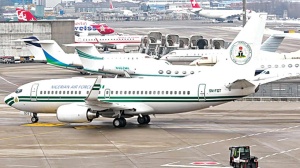
Three jets in the Presidential Air Fleet (PAF) are to be sold off, it was learnt at the weekend.
This is part of the cost-saving measures being adopted by the Tinubu Administration, an official revealed.
There are 10 aircraft in the fleet – six jets and four helicopters – which will be cut to seven if the planned action sails through.
During the administration of President Muhammadu Buhari, the plan to sell two planes in the fleet did not materialise.
In October 2016, a Dassault Falcon 7x executive jet and a Beechcraft Hawker 4000 business jet were put up for sale.
The preferred bidders who initially agreed to pay $ 24 million for the two aircraft, later reduced their offer to $ 11 million. This was rejected by the then government.
Thereafter, an arrangement to put some of the aircraft on chatter for willing governors was initiated to make the planes income-generating, thereby reducing the government expenses on maintenance.
The planes in the Presidential Fleet are Boeing Business Jets (BBJ) 737, Gulfstream G550, Gulfstream G500, two Falcon 7X, HS 4000, two Agusta 139, and two Agusta 101.
The BBJ 737 is the Nigerian Air Force One, which is used exclusively by the President.
It is designed to serve as an office and a residential quarter on air to enable the president to function effectively during his trip.
The President also uses one of the helicopters for shuttles during his trips around the country.
Other jets in the fleet are used by top government officials, including the Vice President, governors, the President of the Senate, the Speaker of the House of Representatives, the National Assembly members on special shuttles, the Secretary to the Government of the Federation, ministers on special missions, the Chief of Staff, advisers and even ambassadors of plenipotentiary status.
It could not be ascertained at the weekend if the President BBJ 737 will be sold and replaced.
The BBJ was bought for about $43 million during the administration of President Olusegun Obasanjo.
A Falcon and Embraer jets have been slated to be sold.
Not less than N80 billion has been budgeted for the PAF as maintenance cost, as follows: 2016 (N3.65 billion), 2017 (N4.37 billion), 2018 (N7.26 billion), 2019 (N7.30 billion), 2020 (N6.79 billion), 2021 (N12.55 billion), 2022 (N12.48 billion) and in 2023 about N25.7billion, made up of N13billion in the budget and N12.7billion in the 2023 Supplementary Budget.
The amount released from the budgetary line year on year could not be confirmed.
But President Tinubu is said to be uncomfortable with the rising cost of maintenance, hence his directive to reduce the fleet.
A top source, who spoke in confidence, said: “The President is uncomfortable with the rising cost of maintaining the planes.
“Three planes have been pencilled down for disposal.
“The main reason is cutting down high maintenance costs.
“I think officers in PAF were particularly concerned about the frequency of maintenance and how much it costs the nation.
“The President decided to let off the aircraft that constitute the most burdensome.”
An investigation confirmed that the presidency might have incurred over $5 million as maintenance fees in the past few months.
It was unclear the actual figure of outstanding commitments on the fleet which have not been settled.
Giving reasons for the use of some of the planes by top government officials, a source said: “It takes much time to connect some African countries by air. In such a situation, the Presidential Air Fleet is handy.
“The use of the fleet is domiciled in the Office of the National Security Adviser (ONSA) for effective management.”
Last week, President Tinubu in another cost-saving measure imposed a three-month travel ban on public-funded foreign trips by Federal Government officials.
News
Reps Minority Caucus Condemns Killings in Edo State

By Gloria Ikibah
The Minority Caucus of the House of Representatives has strongly condemned the recent killings of about 16 Nigerians, mainly northerners, by an armed group in Edo State.
In a statement signed by Minority Leader, Rep. Kingsley Chinda, Minority Whip, Rep. Ali Isa JC, Deputy Minority Leader Rep. Aliyu Madaki, and other leaders of the caucus on Saturday, the caucus described the attack as “barbaric” and “reprehensible,” warning that if such violence is not curbed, it could threaten national peace and unity.
“We find such brutal killings of innocent Nigerians in any part of the country by lawless mobs very reprehensible, and if allowed to fester without being put in check by responsible organs of the federal government, such actions could threaten the peace and unity of the country,” the statement read.
The lawmakers urged Nigerians to avoid taking the law into their own hands and instead seek the intervention of law enforcement agencies when faced with security concerns.
The Minority Caucus called for swift action, and urged President Bola Ahmed Tinubu to direct security agencies to investigate the incident and ensure those responsible are brought to justice.
“We implore all Nigerians to never resort to such jungle attacks on their fellow citizens but to always implore the services of lawful authorities whenever they notice any issue of concern.
“In the face of this grave incident, which is already setting emotions on edge in parts of the country, we hereby call on the President and Commander in Chief of the Armed Forces of the Federal Republic of Nigeria, His Excellency Senator Bola Ahmed Tinubu, GCFR, to direct the security agencies to investigate this matter and bring all those involved in the killings to book in order to prevent its recurrence. And also adequate compensation should be paid to the affected families,” they demanded.
The caucus also appealed to Nigerians to remain calm and allow the government to handle the matter.
“We also call on all Nigerians to remain calm, peaceful, and law-abiding and allow the federal and state governments to get to the root of this matter in the interest of justice,” the caucus stated.
The lawmakers extended their condolences to the families of the victims, and assured Nigerians of their commitment to ensuring justice is served.
“We express our sincere sympathies and condolences to the families of the victims even as we assure them and all Nigerians that we, the Minority Caucus of the House of Representatives, will remain eternally vigilant until justice is done on this matter,” the statement continued.
News
Police ‘rescue’ landlord, daughter from k!dnappers clutches in Lagos

By Kayode Sanni-Arewa
Suspected gunmen abducted a landlord and his daughter in the Ijede area of Ikorodu in Lagos.
In a statement on Sunday, Benjamin Hundeyin, the Lagos police spokesperson, said the kidnappers abducted the victims on Wednesday.
Hundeyin added that on Saturday, the command rescued the kidnapped victims unhurt and handed them over to their family members.
According to the police spokesperson, the command has launched a manhunt for the perpetrators.
“The police received information that some kidnappers invaded Ijede community and kidnapped two persons,” the statement reads.
“Upon receipt of the report, police operatives were mobilised to the scene where it was observed that the kidnappers forcefully gained entrance into the house of a 40-year-old man, killed the security dog and kidnapped him.
“The kidnappers equally forced their way into the nearby house and kidnapped the landlord’s 25-year-old daughter.
“With the collaborative efforts of both the police joint task force and other stakeholders, the kidnapped victims were rescued unhurt and handed over to their family members.
“The area is relatively calm and being closely monitored, and efforts are ongoing to apprehend the wanted suspects.”
News
Just in: Tinubu extends immigration CG Nandap’s tenure till 2026
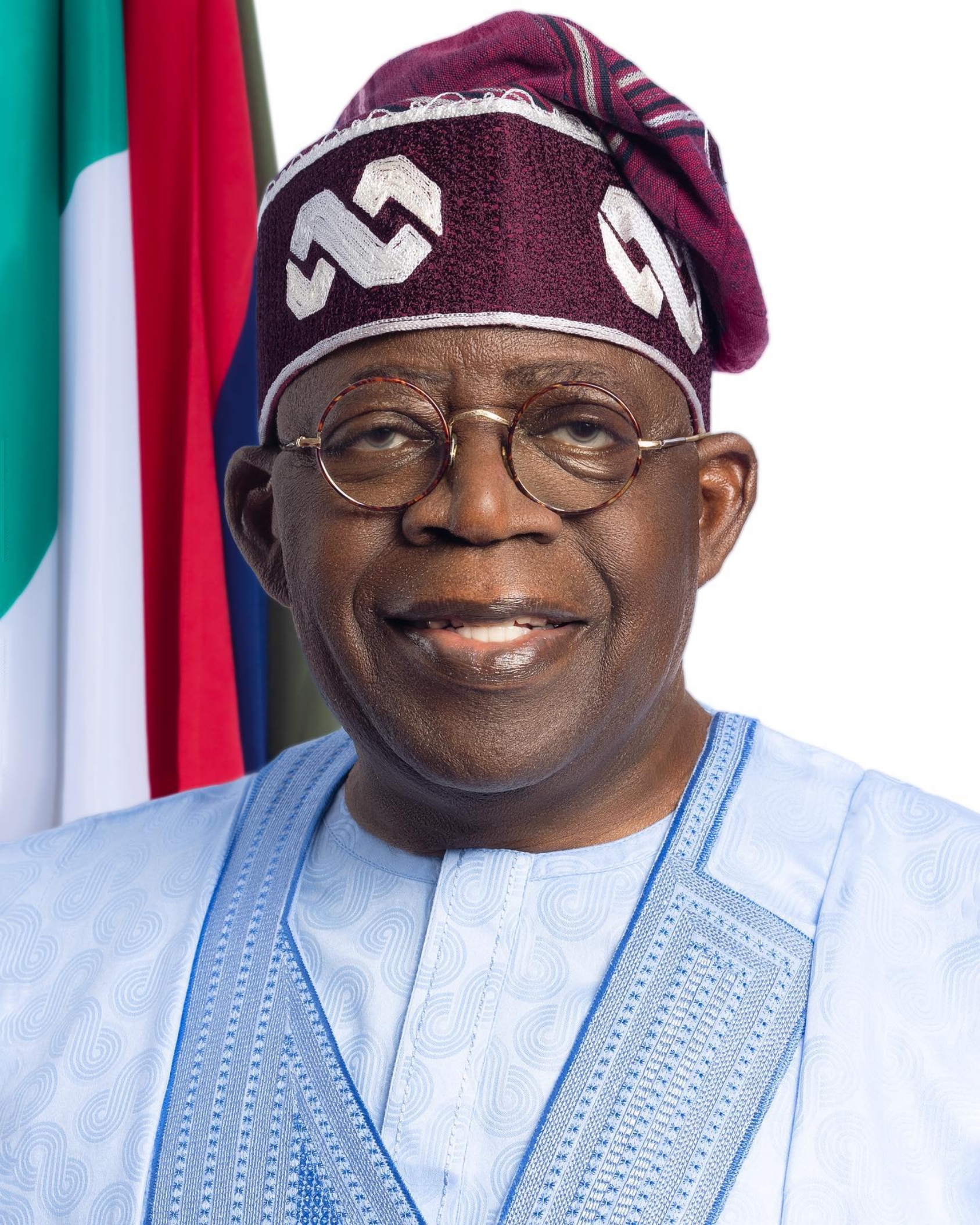
By Kayode Sanni-Arewa
President Bola Tinubu has approved the extension of the tenure of the Comptroller-General of the Nigeria Immigration Service, Kemi Nandap, until December 31, 2026.
Nandap, who joined the NIS on October 9, 1989, was appointed as Comptroller-General on March 1, 2024, with an initial tenure set to end on August 31, 2025.
A statement by the president’s Special Adviser on Information and Strategy, Bayo Onanuga, on Monday, said Tinubu commended Nandap for her leadership, noting improvements in border management, immigration modernisation, and national security under her watch.
“Under her leadership, the Nigeria Immigration Service has witnessed significant advancements in its core mandate, with notable improvements in border management, modernisation of immigration processes and national security measures.
“President Tinubu commended the Comptroller-General for her exemplary leadership and urged her to continue dedicating herself to the Service’s strategic priorities, which align with his administration’s Renewed Hope Agenda,” the statement read.
He also reaffirmed his commitment to supporting the NIS in safeguarding Nigeria’s borders and ensuring safe and legal migration.
-
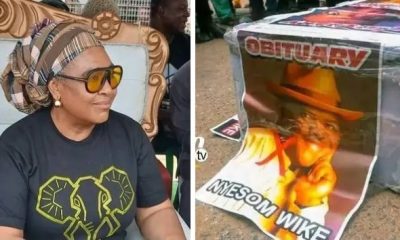
 News10 hours ago
News10 hours agoWike’s Aide reacts as photo appears online, points accusation finger at paid failed actress
-
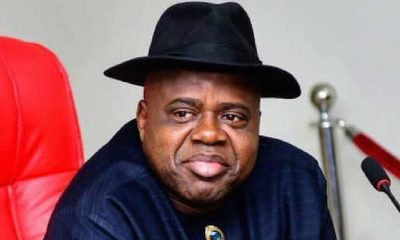
 News16 hours ago
News16 hours agoUpdated: WATCH moment Gov Diri’s Tech Adviser Kerry admits blowing up pipelines (Video)
-
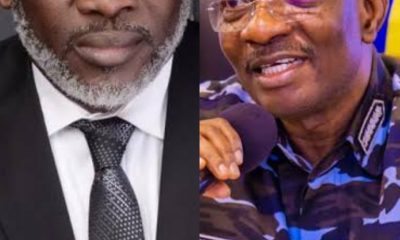
 News5 hours ago
News5 hours agoFormer HoR member, TeeJay Yusuf calls on IGP, Kogi govt, other agencies to curb rising insecurity in Okun-Yoruba
-
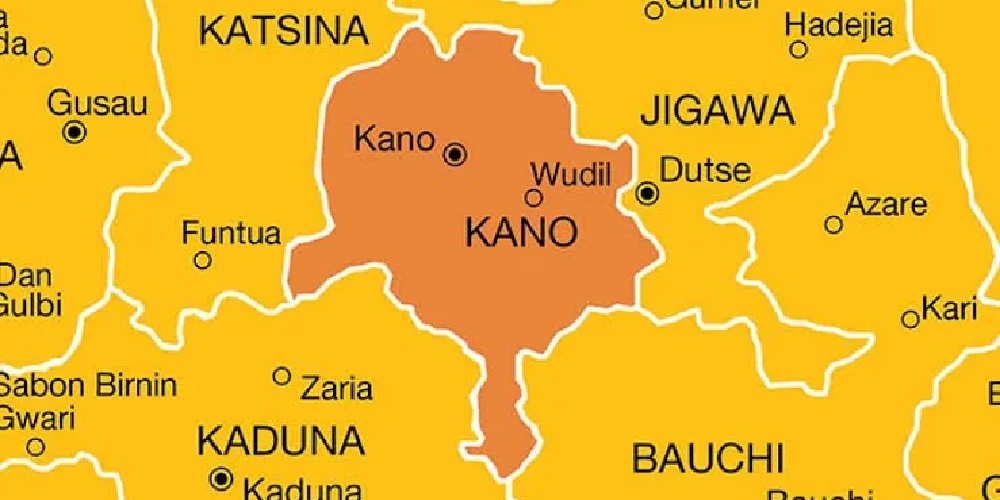
 News7 hours ago
News7 hours agoEdo Killings: Kano Govt Sends Fact-Finding Delegation, Demands Justice
-
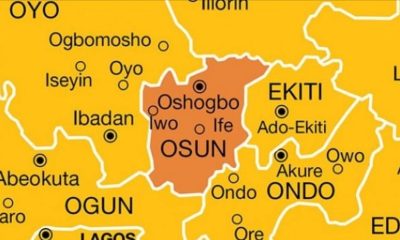
 News7 hours ago
News7 hours agoJust in: Popular Osun Monarch Joins Ancestors
-
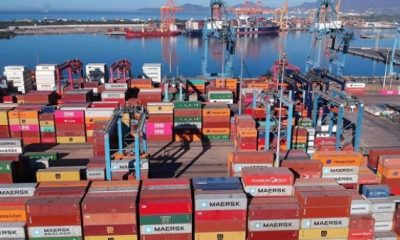
 News4 hours ago
News4 hours agoMali, Niger, Burkina Faso Impose 0.5% Levy On Goods From ECOWAS Nations
-
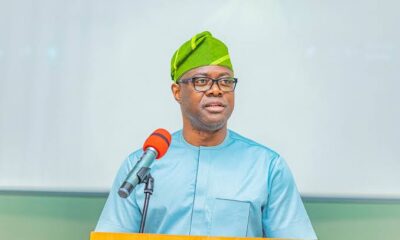
 News11 hours ago
News11 hours agoN24bn monthly salaries drive Oyo’s economic stability – Makinde assures
-

 Entertainment16 hours ago
Entertainment16 hours agoTears of Joy as Biola Adebayo surprises veteran actress Dupe Jaiyesimi with a brand-new car






